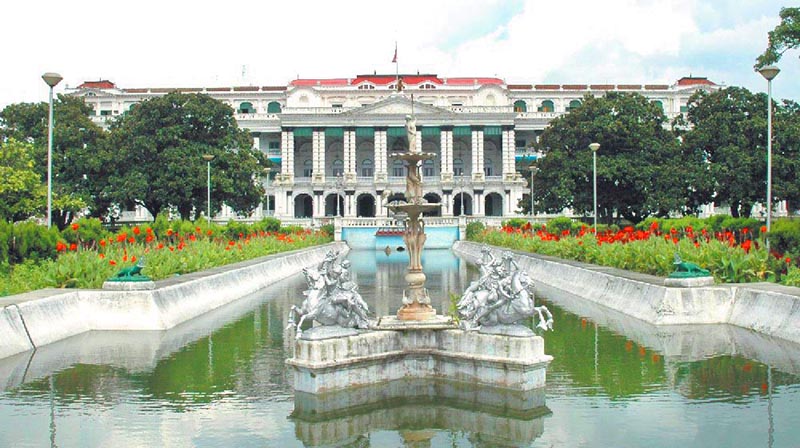Govt told to start fresh appointment process
Kathmandu, July 29
International rights organisations today called on the government to suspend the current process of appointment of commissioners in two transitional justice bodies, and initiate a new consultative and transparent process for the same.
Issuing a joint statement today, the organisations — Amnesty International, International Commission of Jurists, Human Rights Watch, TRIAL International — also urged the government to follow through on commitments to amend the Transitional Justice Act in line with Nepal’s international human rights standards and Supreme Court rulings, and adopt and publicise a plan for taking the transitional justice process forward.
The statement comes at a time when conflict victims too have demanded reconstitution of the committee led by former chief justice Om Prakash Mishra to recommend members of the Truth and Reconciliation Commission and the Commission on the Investigation of Enforced Disappearances. The committees, which have collected more than 63,000 complaints of conflict-era rights violations, have remained vacant since their commissioners retired on April 14.
Accusing the committee of working at the direction of political parties, the victims had on July 18 submitted a memorandum to the government demanding that the appointment process be halted immediately and resumed afresh only after the amendment of the Transitional Justice Act in line with the Supreme Court verdicts.
Although the government and parties have time and again made commitments to amend the act and reconstitute the commissions appointing competent members, parties have yet to reach consensus on the matter.
“We have seen no evidence so far that the authorities of Nepal are serious about fulfilling their obligation to investigate conflict-era violations and bring all those suspected of criminal responsibility to justice in fair trials before ordinary civilian courts,” said Raju Chapagai, South Asia researcher at Amnesty International, in the statement.
The rights bodies stated that instead of amending the act in line with Nepal’s international human rights law obligations and Supreme Court verdicts, the government pushed forward, without adequate consultation, with the establishment of a committee to recommend TRC and CIEDP members.
“The failure of the government to deliver on its commitment to ensure truth, justice and reparations for victims of conflict-era abuses shows a dismaying disregard for the protection of human rights,” said Meenakshi Ganguly, South Asia director at Human Rights Watch.
Helena Rodríguez-Bronchú, head of TRIAL International’s Nepal programme, said legitimacy of Nepal’s transitional justice process lay both on a transparent and consultative appointment process for commissioners, and a strong legal foundation to allow the commissions to fulfil their mandate. “Societal consensus is crucial for both factors,” she said.
ICJ Asia-Pacific Director Frederick Rawski said in the statement that the lack of progress in holding perpetrators accountable for the suffering inflicted upon victims, their families and Nepali society as a whole, was appalling. “Nearly 13 years after the signing of the Comprehensive Peace Agreement, political leaders inside and outside the government are still playing games by politicising the process. It is about time they showed some courage and took action to ensure access to justice, instead of continually looking after their own short-term self-interests,” he said.






